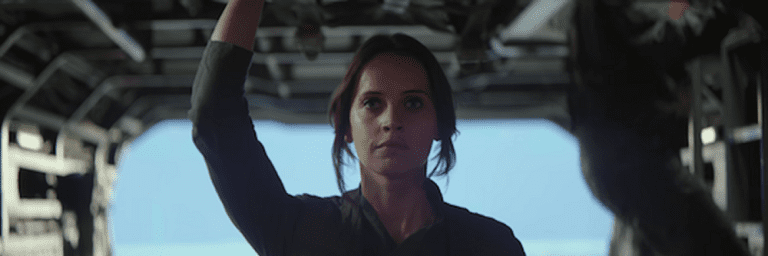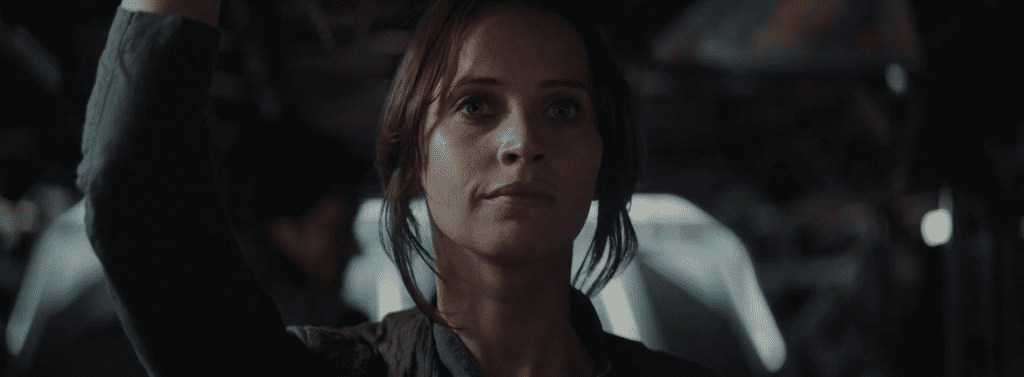 The main characters are a little older and wiser than they were before, the action scenes are bigger and splashier than ever, and we see mercifully little of Jar Jar Binks, so it goes without saying that Attack of the Clones, the latest chapter in the Star Wars saga, is better than its convoluted, infantile predecessor, The Phantom Menace. But not by much.
The main characters are a little older and wiser than they were before, the action scenes are bigger and splashier than ever, and we see mercifully little of Jar Jar Binks, so it goes without saying that Attack of the Clones, the latest chapter in the Star Wars saga, is better than its convoluted, infantile predecessor, The Phantom Menace. But not by much.
Many of the problems that plagued the earlier film are still on display, from the poor writing and wooden performances to the fact that George Lucas seems to have abandoned the mythic archetypes and fairy-tale manner of the original trilogy in favour of phony political conspiracies. Some people defended the last film on the dubious grounds that the special effects, and not the story, are what these movies are all about, but Lucas himself has said Attack of the Clones is supposed to be the “romantic” episode in the series, and no amount of digital trickery can make up for bad drama. It is in this film that Anakin Skywalker (Hayden Christensen) and Senator Amidala (Natalie Portman), the future parents of the original trilogy’s Luke and Leia, fall in love, but Lucas has never cared for character development, except insofar as it helps him to get to the next plot twist, and his weakness in this area cripples the film at crucial moments.
The main villain of the film is the crafty Chancellor Palpatine (Ian McDiarmid), who sees an opportunity to seize power when a separatist movement, led by the renegade Jedi Count Dooku (Christopher Lee), threatens to break away from the galactic Republic. While the Senate, led by Palpatine, considers forming a new army to defeat the separatists, Senator Amidala is attacked by terrorist assassins. These attacks are blamed on the separatists, even though Amidala’s pacifist inclinations would seem to work in their favour, so her security is entrusted to the young Jedi apprentice Anakin, even though he is obviously smitten with Amidala and Jedi like him are forbidden to fall in love.
Meanwhile, Anakin’s master Obi-Wan Kenobi (Ewan McGregor) discovers a cloning facility that is making hundreds of thousands of mass-produced soldiers. Some critics say this subplot gives the film a special relevance to current events, but Attack of the Clones never really addresses the issues involved in cloning, per se. What the film does do is hint, strongly, that these clones will become the stormtroopers of the original trilogy, and this has the odd effect of making the violence in those films seem even more sanitized than it already was. Genetically engineered to follow orders, the clones don’t really have minds of their own; the clones are, in a sense, just battle droids made of flesh, so Lucas has arguably dehumanized the enemy even further and made it easier to cheer their destruction.
There is much to admire in this film, on a visual level, such as the planet where the clones are formed, which appears to be nothing but rainstorms and ocean waves, and a chase sequence in which Obi-Wan dodges asteroids shattered by seismic charges. But like the film that came before it, Attack of the Clones fails to make its characters all that interesting, and as a result, it lacks both the joy and the dramatic heft of the original trilogy; even the climactic lightsabre duel between Count Dooku and the computer-animated Yoda (voice of Frank Oz) is little more than an amusing piece of eye candy, and not the portentous duel of the fates that all previous matches have been.
But the most alarming thing about this film may be that, for the first time, a Star Wars movie has no greater moral or spiritual lesson to impart, beyond paying lip service to democracy. In fact, the prequels serve as an uncomfortable reminder that, for a director who claims his films are meant to teach basic moral principles, Lucas has been sending mixed messages for a while. For example, Yoda says lies and deceit are of the Dark Side, but it is often the villains who tell the truth, while the Jedi try to pull the wool over other people’s eyes. Remember who told Luke the truth about his father?
I don’t like to criticize these films. I saw the first Star Wars when I was six or seven years old, and I have been a fan ever since; indeed, it was my love for that film and its sequels which sparked my interest in all things cinematic, and in the relationship between film and faith. I fondly recall how delighted many of my fellow Christians were to see such a clear Christ-figure in Obi-Wan Kenobi, a wise worker of wonders who is betrayed by his disciple, and who sacrifices his life, and who then guides the hero in his fight against evil. But the prequels have forced me to re-evaluate such things; what once seemed like wise, if overly cautious, advice on the part of Yoda and Obi-Wan now looks like a repeat of the mistakes they made before Luke was born.
Consider their views on personal relationships. One of the more unexpected revelations in Attack of the Clones is that the Jedi Order forbids its members to form emotional “attachments” to other people, including parents and lovers. The prequels seem to support the Jedi position; it is Anakin’s love for his mother Shmi (Pernilla August) that brings out the Dark Side in him, first as fear in Episode I, then as hate and anger in Episode II, and his secret, illicit romance with Amidala may play a role in turning him into the evil Darth Vader in the next film — so we can understand why Yoda might discourage “attachments” of another sort when he tells Luke to sacrifice his friends in The Empire Strikes Back. But it is precisely because Luke puts his friends first and disobeys Yoda, and thus learns the truth about his father, that Anakin is redeemed in the end. The prophecy that Anakin would “balance the Force” ultimately comes true when Luke and Vader admit their “attachment” to one another, and Vader, stirred by his son’s pleas for help, kills the evil Emperor.
It used to bother me that Luke’s refusal to obey Yoda and Obi-Wan did not have the awful consequences that they predicted. But now, I see Luke’s rebellion in a very different light. It seems the Jedi rule against “attachments” may be rooted in the Buddhist idea that the problem facing us is not sin, but suffering, and that the way to reduce suffering is to reduce desire, including the desire for personal attachments. (Contrast that with Shadowlands, the film about C.S. Lewis’s marriage, where the point is made repeatedly that God works in our lives through suffering, and that all loving relationships end in pain — but the love is worth the pain!) So now, Luke’s refusal to abandon his friends, and his refusal to dehumanize his father as Obi-Wan does, seem like a necessary, even Christian, corrective to the Jedi philosophy. Consider, too, how the prophecy is fulfilled when Vader takes his son’s suffering upon himself and dies in his son’s place.
So where does Lucas, a self-proclaimed “Buddhist Methodist”, stand on all this? If he were writing this story today, which sensibility would come out on top, in the end? In The Empire Strikes Back, Yoda insists anger and fear are of the Dark Side — even, it seems, when such feelings are legitimate — and as an alternative to these things, he recommends not love and hope, but being “calm” and “passive”; instead of having bad emotions, Yoda does not say have good emotions, but have no emotions. However, the Ewok song at the end of the original version of Return of the Jedi concluded with the words, “Celebrate the love!” No one in the films ever promotes “love” as an alternative to hate, not in so many words — but if you think about it, it seems pretty clear that that element is there in the story. Then again, this song was cut from the “special edition” of Jedi five years ago, and Lucas has said he will tinker with the film some more. Did he decide “Celebrate the love!” is now the wrong note on which to end his six-part story? Or did he simply find the singing Ewoks embarrassing? Either way, even if the next film is an artistic disaster, it will be interesting to see where Lucas goes with these themes.
Internet Movie Database | Movie Review Query Engine
USA: PG | BC: PG | ON: PG
— A version of this review was first published at CanadianChristianity.com.












